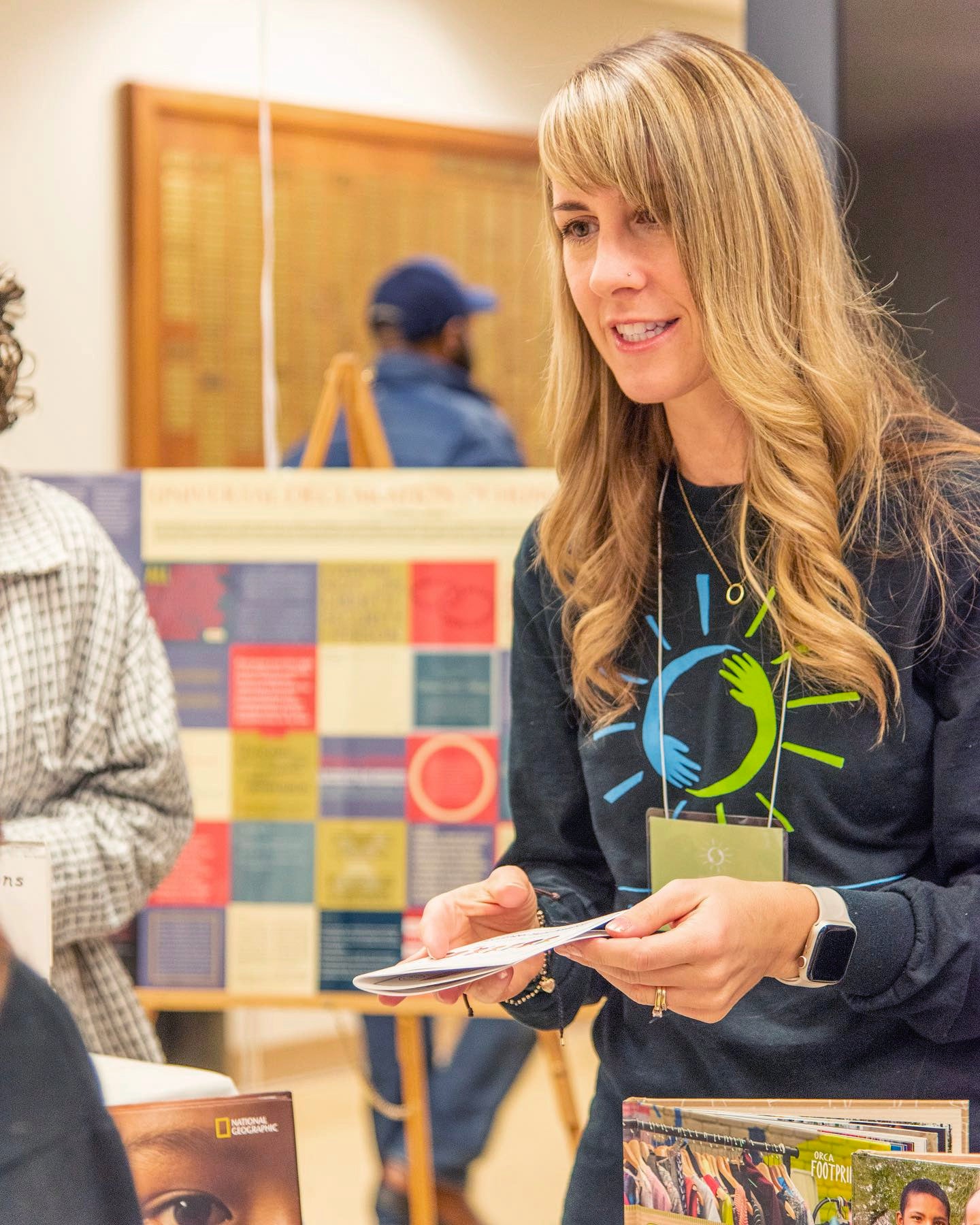
‘I've told this story many times,” Donna Brady, an Advoz volunteer, tells me. “I was assigned to work at a local school district and, while there, a report of a student calling in a bomb threat was sent to the office staff. They have a series of protocols for such reports, and I witnessed the administrators in action.”
She continued, “While they were assessing the threat and investigating, I asked if I could speak to the student who had been accused of bringing the gun to school… I was allowed to sit with him. With my training from Advoz, I began the restorative process. I made him consider how his actions would affect others, including his parents and friends.”
“He told me of his little brother who worshiped him,” Brady continued. “Then his face fell, as did the tears. He said to me, ‘He thinks I’m amazing.’ We processed not just how others would feel, but the specifics of how to talk to his parents. He was so upset with himself. A little while later, his friend – the one who made the report to the office – was allowed in to talk with his friend. No bomb was ever really at the school. The young man had been showing off to his friend. But now he said, ‘I was thinking. I was trying to be funny, but I know it wasn't.’ They even agreed that the friend who reported the boast was right to report it.”
Brady explains that this young man still received all requisite punishments. “But, because I could talk with him and work with him and his friend, awareness and understanding were found,” she says. “And no one was frightened going home. He still faced consequences for his actions, but he realized that his actions have consequences and he would never do something like that again.”

Brady spent 35 years working as a (beloved!) social studies teacher at a local school district. When she retired, her dreams of travel and fun were put on hold during the COVID-19 pandemic. At home with little to do, she researched Advoz and their work; from there, she decided to take their three online courses on restorative justice.
She had previously heard of restorative justice practices as a teacher – but admits that the term often has a bit of a reputation of leniency, with the belief that there are no real consequences for a student’s poor behavior. While taking Advoz’s courses, however, Brady discovered that – much of the time – restorative practices are implemented half-heartedly, and are not invested in with the necessary time and focus to make them truly effective.
As COVID restrictions were lifted, she started to take her Advoz training out to local schools. She helped to train staff, and – unlike so many programs that are started in schools – she was dedicated to remaining part of the process, working in classrooms and training primarily elementary and middle school teachers and administrators. The most impactful training is done when children are younger, Brady emphasized, when they are facing smaller mistakes, but teaching lasting lessons.

Formed in 2017, Advoz: Mediation & Restorative Practices combined the resources of two other peace-building and restorative justice organizations. It has since grown into a highly-demanded organization. Schools – like our larger communities – are experiencing extraordinary levels of anxiety, hostility, and inappropriate behavior. Many school districts have asked ADVOZ to help teach their communities these impactful restorative justice practices. As Donna Brady makes clear: While there are consequences for mistakes, there are also lessons to be learned.
How You Can Make A Difference?
At Gifts That Give Hope, we’re expanding beyond the annual Gift Fair to make meaningful giving possible all year long. Our online catalog highlights nonprofits from past fairs, making it easy to support causes you care about—for birthdays, holidays, and every special moment in between.
Interested in volunteering at the Fair?
Sign up now and save the date! Bring a friend to volunteer with you or plan to meet up before or after your shift for some extra fun. 💛


